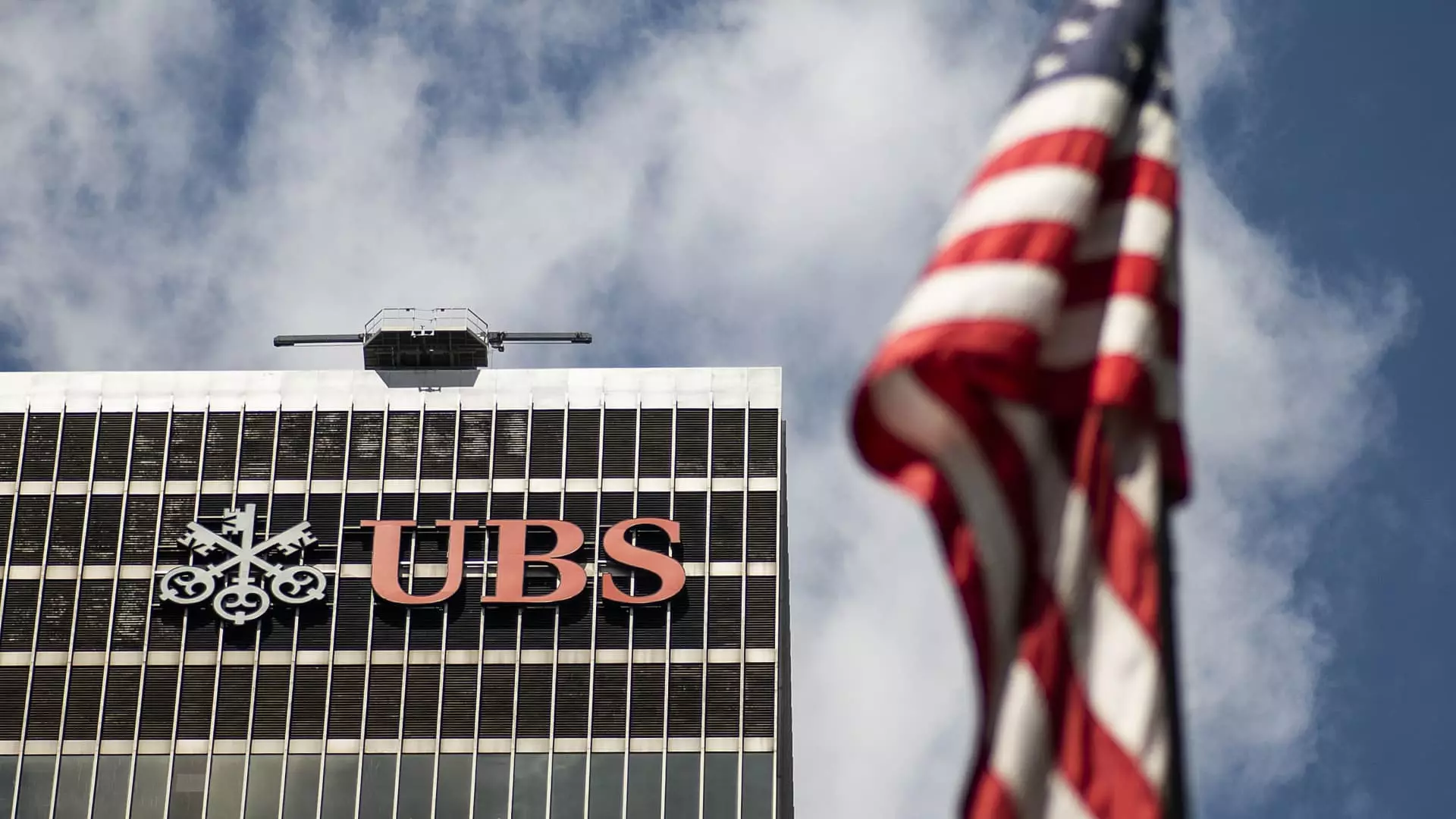In a significant development, Swiss bank UBS has agreed to pay a hefty combined amount of $1.4 billion in civil penalties as a resolution to charges of fraud and misconduct related to its offering of residential mortgage-backed securities. This settlement is the culmination of a long-standing legal battle dating back to the global financial crisis and concludes the final case brought against major financial institutions by the U.S. Department of Justice.
A “Legacy Matter”
UBS acknowledged the settlement, stating that it addresses a “legacy matter” pertaining to its activities from 2006 to 2007, in the period leading up to the financial crisis. This admission highlights the bank’s involvement in questionable practices during a time of economic uncertainty. The settlement sheds light on the bank’s failure to uphold ethical standards and its role in the crisis that had repercussions globally.
The U.S. Department of Justice has managed to retrieve a cumulative amount of $36 billion from multiple financial institutions involved in misleading practices related to mortgage-backed securities. This significant monetary recovery reaffirms the magnitude of the fraudulent activities that took place in the years preceding the financial crisis. The high value of the settlement reflects the severity of the offenses committed by UBS and underscores the bank’s role in the financial meltdown.
The Scale of UBS’ Misconduct
UBS’ settlement amount remarkably aligns with the value of the residential mortgages it originated between 2005 and 2007. During that period, UBS issued $1.5 billion in residential mortgages, but its practices fell short of the required standards, ultimately contributing to the crisis. The bank attempted to challenge the allegations made by the Justice Department in 2018, claiming that most of the loans underlying the mortgage-backed securities were originated by other financial institutions. However, this justification does not absolve UBS of its own misconduct and negligence in the underwriting process.
Investment banks, including UBS, played a significant role in the financial crisis by packaging, securitizing, and selling bundles of mortgages to institutional buyers. These securities were given ratings indicating their quality, but unbeknownst to the purchasers, the underlying mortgages did not meet the promised standards. UBS, along with other banks that settled with the Justice Department, was aware of this discrepancy. Yet, it continued to sell mortgage-backed securities to its clients, prioritizing financial gain over ethical responsibility.
A Failed Obligation
Prosecutors alleged that UBS conducted extensive due diligence on the underlying loans before creating and selling the mortgage-backed securities. Despite discovering significant issues with the products, the bank failed to act in the best interest of its clients. UBS previously claimed that it had fulfilled its obligations to its clients, labeling them as “highly sophisticated investors” and “some of the biggest financial institutions in the world.” However, this assertion raises questions about UBS’ commitment to its clients and highlights a disregard for their financial well-being.
Settlements and Repercussions
The Justice Department has reached settlements with 18 other financial institutions, including major players such as Bank of America, Citigroup, General Electric, Goldman Sachs, JPMorgan, and Wells Fargo, over mortgage-backed security issues. These settlements reflect the extensive systemic misconduct that occurred in the financial industry and underscore the widespread impact of the global financial crisis. Admissions of guilt and significant financial penalties serve as a deterrent to future misconduct and emphasize the importance of accountability within the banking sector.
The Credit Suisse Connection
It is noteworthy that Credit Suisse, a defunct Swiss bank now owned by UBS, also settled with the Justice Department for misconduct related to mortgage-backed securities offerings. This parallel settlement reinforces the prevalence of fraudulent practices within the banking industry during the period under scrutiny and implicates multiple financial institutions in contributing to the financial crisis.
UBS’ agreement to pay $1.4 billion in civil penalties serves as a stark reminder of the ethical lapses and misconduct that occurred during the global financial crisis. The settlement highlights the bank’s failure to uphold an ethical standard and its role in exacerbating the financial turmoil. Moving forward, it is crucial for financial institutions to prioritize integrity, transparency, and accountability to prevent a recurrence of the catastrophic events that led to the crisis.


Leave a Reply